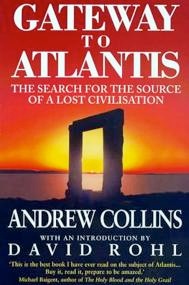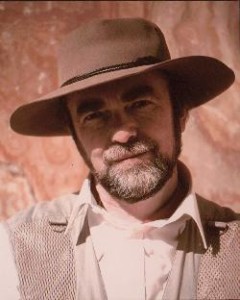Gateway to Atlantis
Gateway to Atlantis
Gateway to Atlantis [072] by Andrew Collins is one of the better books on the subject. It is a fully indexed and referenced work that clearly indicates the effort and depth of research that went  into producing it.
into producing it.
Collins was originally inclined to believe that the Antarctic had been the home to Atlantis but has gradually come to focus his attention on the Caribbean. He has trawled the classical writers for any possible reference to Atlantis and has concluded that all their considerable evidence points to the Atlantic and in particular the Caribbean as the location of Atlantis.
In order to explain the sudden destruction of Atlantis, Collins discusses the possibility of some kind of cometary or asteroidal impact being the culprit. He is inclined to see the Carolina Bays as remnants of this collision. His conclusions are closely mirrored by the views of Emilio Spedicato. More details can be found on Collin’s website(a).
Paul Jordan, an Atlantis sceptic, has written a critical review of Collins’s book in his Atlantis Syndrome[418] , part of which is now available online, spread over four papers(b).
>Another sceptic, Paul Heinrich, has also offered a critical review of ‘Gateway’ with particular reference to geological evidence offered by Collins(c). Collins and before him Otto Muck and later Hancock viewed the Carolina Bays as evidence of a possible civilisation destroying impact. Heinrich took a different view when he concluded that “In a detailed examination of the geologic evidence offered by Collins for a catastrophic meteorite or comet impact about 10,500-10,600 BP (8,500-8.600 BC), I found that none of the observations or data provide convincing evidence for such an event. In the case of the Carolina Bays, there is overwhelming evidence that these features formed tens of thousands of years before 10,500-10,600 BP. Thus it is impossible that these features could have been formed at the time proposed by Collins.” My problem is that Heinrich’s very ancient date for the ‘bays’ raises the question of how they are not eroded to a greater extent!<
(a) https://www.andrewcollins.com/
(b) https://web.archive.org/web/20211205075454/https://world-news-research.com/cgatlantis.html
Rohl, David *
David Rohl (1950- ) holds a degree in Ancient History and Egyptology from University College London. He is a former rock musician and is the author of three best-selling history books[229][230][232] that controversially proposed a New Chronology for the ancient  eastern Mediterranean and has presented television documentary programmes on the same subject, which have provoked severe criticism(a).
eastern Mediterranean and has presented television documentary programmes on the same subject, which have provoked severe criticism(a).
Bryant G. Wood, an American biblical archaeologist, disputes the validity of Rohl’s revised chronology as he sees it as an attack on his belief in the veracity of the Bible(f).
Drawing some inspiration from the work[1388/9] of Reginald A. Walker (1917-1989), Rohl has also argued for the Garden of Eden being situated in what is now northwestern Iran[230]. Equally controversial is Rohl’s claim that the biblical Tower of Babel was sited at the Sumerian city of Eridu[231]. This claim was explored in detail in Yesterday Channel’s, Secrets of the Bible series (S1 E8).
Unexpectedly, he has written an introduction to Andrew Collins’ bestseller, Gateway to Atlantis, in which he expresses his regret for the lack of firm archaeological evidence to support the existence of Atlantis, but is clearly sympathetic to the idea and is somewhat supportive of an Atlantic location. He repeated and expanded on his views at a subsequent lecture(b).
Rohl also proposed that the Shardana, one of the Sea Peoples, originally came from Sardis in Lydia and later established the Nuragic Culture in Sardinia [232.449]. Recently, Angelo Paratico propounded the same idea during a lecture in Hong Kong in 2004(d). Perhaps more pertinent is a Wikipedia entry which notes that “According to Timaeus, one of Plato’s dialogues, Sardinia and its people as well, the “Sardonioi” or “Sardianoi”, might have been named after “Sardò”, a legendary woman from Sardis, capital of the ancient Kingdom of Lydia in Anatolia.”(e)
Peter James is another high profile historian who has advocated[046] a similar radical revision of the chronologies of the Mediterranean and Near East. Initially, James and Rohl had jointly researched the flaws in Velikovskian chronology for a number of years, which resulted in a paper(j) written for the SIS in 1982. Rohl has published this document on his website as he “felt it would be useful to republish the ‘first outing’ of the New Chronology theory here since the original paper is difficult to find. It also serves to put the record straight about when and how the revision of the Third Intermediate Period took shape.”
Unfortunately the collaboration ended when until they had divergent views regarding the identification of the biblical Shishak(c), Rohl favouring Ramesses II, while James opted for Ramesses III, suggested earlier by Immanuel Velikovsky [0039]. James has also written a controversial work[0047] on Atlantis, placing it in ancient Lydia (Turkey). Complicating matters further is a related dispute as to whether the biblical Shishak is to be identified as the Egyptian Pharoah Shoshenq or they should be treated as two separate people!(g) Their original collaborative paper is available on Rohl’s website(h) which contains a number of interesting blogs but appears to have been only active in 2012, with nothing posted since!
Readers might be interested in reading the transcript of a 2009 interview that Rohl gave to Andrew Gough(i).
(b) David Rohl (archive.org) *
(c) https://davidrohl.blogspot.ie/
(d) https://www.gingkoedizioni.it/is-there-an-association-between-sardis-and-sardinia/
(e) https://en.wikipedia.org/wiki/Sardinian_people
(f) RohlsChronologyDeconstructed (bibleorigins.net)
(g) https://www.researchgate.net/publication/334975146_Shishak_and_Shoshenq_A_Disambiguation
(h) http://davidrohl.blogspot.com
(i) https://andrewgough.co.uk/interviews_rohl/
